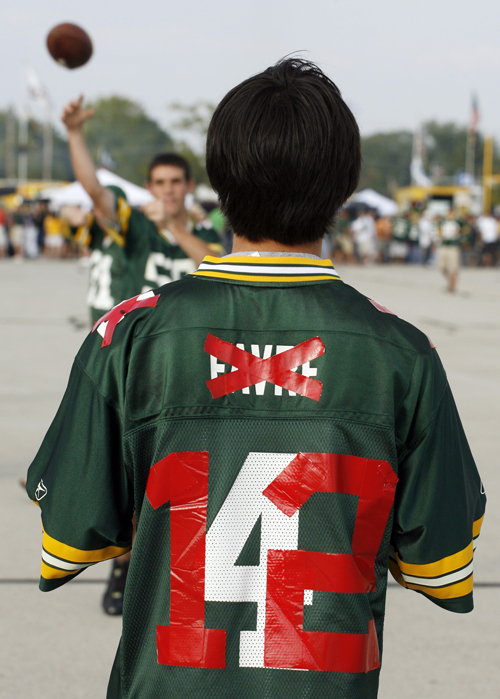“You know, I used to hate Parkman when he was with the A’s. It’s amazing how a new uniform can change your attitude about a guy.” When legendary movie play-by-play announcer Harry Doyle (played by real-life announcing legend Bob Uecker) uttered these words in Major League II, he put a voice to the feelings espoused by many sports fans. Our greatest rivals become fan favorites as soon as they don our home team’s colors, and our sports heroes become persona, non grata, as soon as they take their talents to another city.
Basement Notes: Fanhood

“You know, I used to hate Parkman when he was with the A’s. It’s amazing how a new uniform can change your attitude about a guy.”
When legendary movie play-by-play announcer Harry Doyle (played by real-life announcing legend Bob Uecker) uttered these words in Major League II, he put a voice to the feelings espoused by many sports fans. Our greatest rivals become fan favorites as soon as they don our home team’s colors, and our sports heroes become persona, non grata, as soon as they take their talents to another city.
I am as guilty of this as any other fanatic out there. Born a Cheesehead, my 14-year-old self revered Brett Favre as the savior of the Green Bay Packers when he led the team to a long-sought Super Bowl XXXI victory. Had you told me at that moment that I would come to loathe Favre in my adulthood, I would not have been able to fathom the possibility.
Fast-forward to 2008, when Favre engineered his departure from Wisconsin for a stint with the New York Jets. As difficult as the move was, it wasn’t nearly as painful as what transpired the following offseason, when the gunslinger from Kiln, Miss. signed with the division-rival Minnesota Vikings in 2009. In doing so, he erased nearly all of the goodwill accrued over 16 seasons in Green Bay. From a lifetime of idolatry by the Packer faithful to Public Enemy No. 1, Favre perfectly illustrates the phenomenon of our fickle fanhood.
Every die-hard has a story similar to the Favre saga. Red Sox fans can point to a steady stream of Fenway Park favorites who eventually wound up as Yankees. The world’s top soccer stars roam from team to team, racking up exorbitant transfer fees as mercenaries for hire. Even in a sport like hockey, where a working-class ethos prevails, there are far more players whose careers play out like Wayne Gretzky (four teams in 20 years) than like Mario Lemieux or Steve Yzerman, who played their entire careers in one city and remain legends in Pittsburgh and Detroit, respectively, to this day.
While we would hardly lambaste a colleague for relocating to a better job opportunity, we act like jilted lovers when “our” players exercise their freedom of movement. A simple change of the team name on the front of a jersey severely alters our view of the name emblazoned across the shoulders. Lavish praise quickly morphs into harsh words—sometimes even devolving into death threats—as former disciples struggle to cope with the loss.
What triggers such a virulent response? As fans, we invest a tremendous amount of time, energy and money into rooting for our favorite teams. Franchises provide a link between eras for a city, a shared history in which our pride is vicariously won or lost on the field of competition. The players are our proxies in this struggle, and when they switch allegiances their defection almost feels treasonous. But we must always remember that this investment comes with no guarantee beyond that day’s performance—today’s hero can easily become tomorrow’s villain.
Look no further than Jack Parkman, who didn’t even last with the Cleveland Indians for the entirety of a 105-minute movie.





